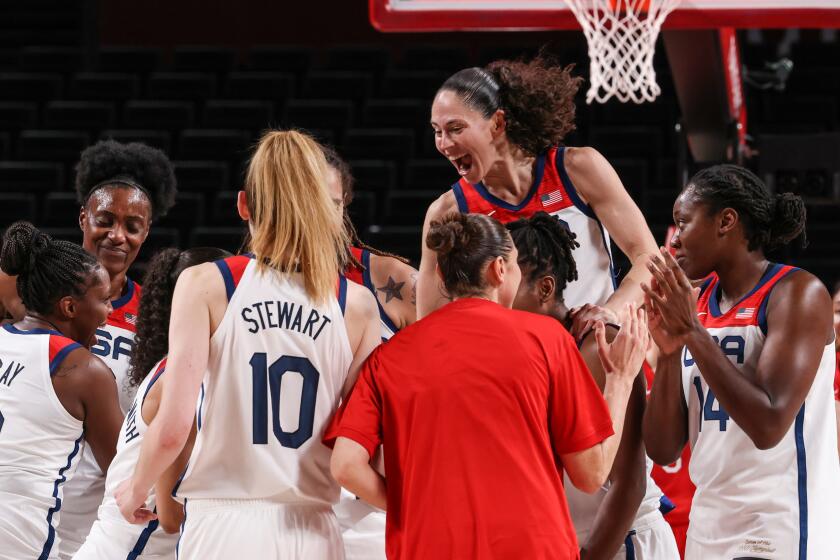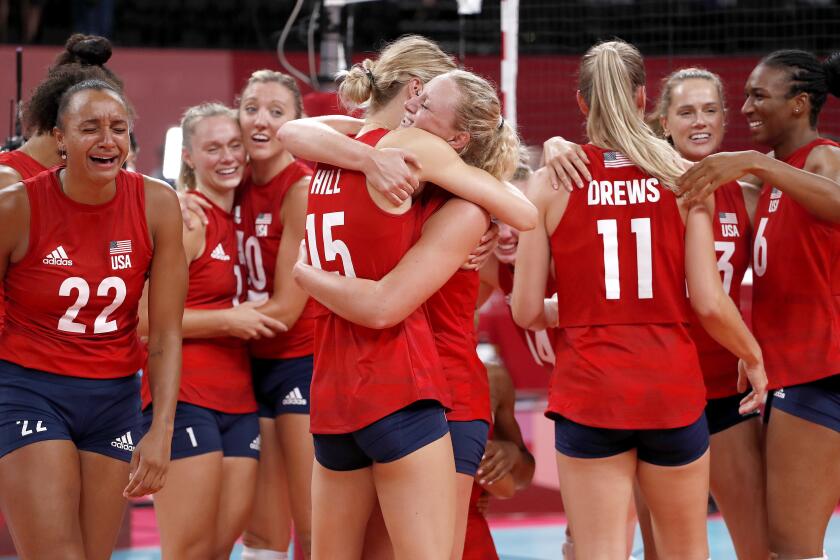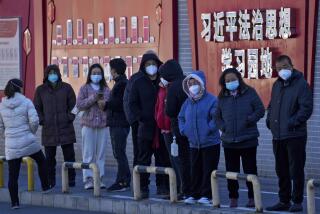Only 181 days until the Winter Olympics in Beijing are set to start
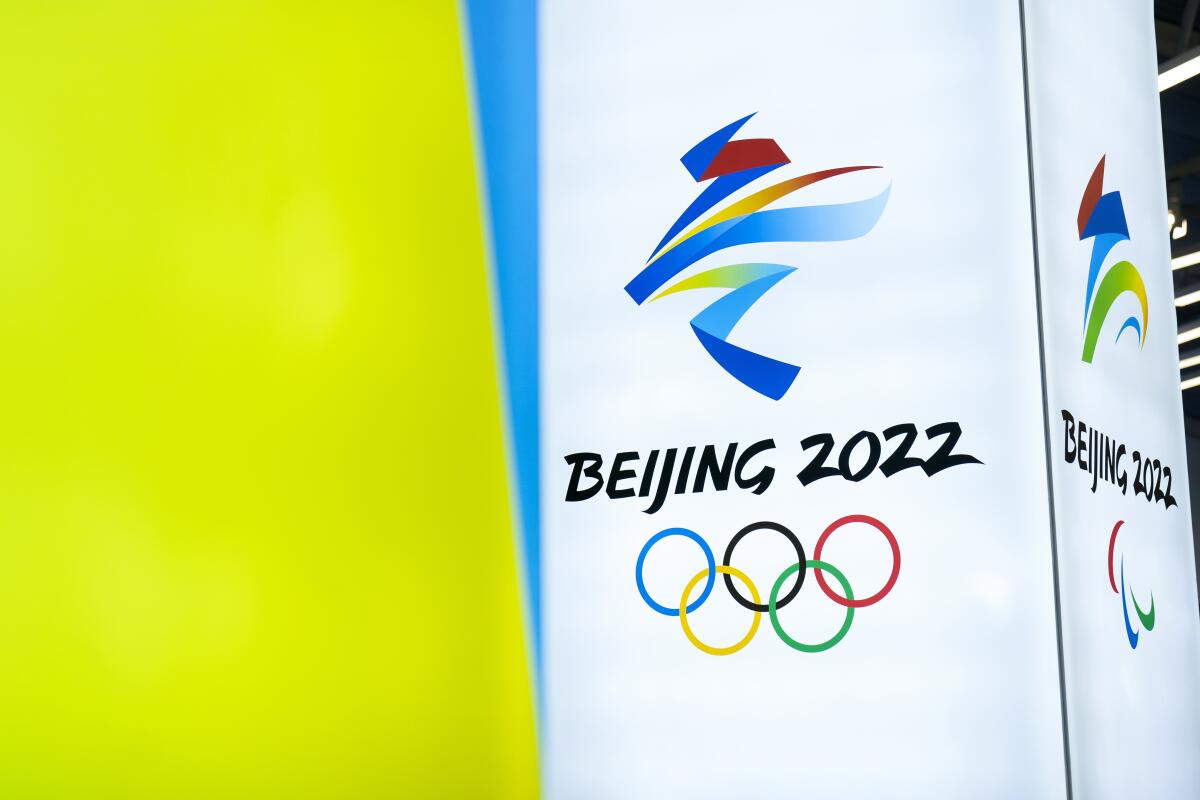
TOKYO — There’s barely even time to pack up the five Olympic rings — symbols of unity, competition and controversy — before they’ll need to be dusted off for the 2022 Winter Games in Beijing.
In the 181 days between the end of the closing ceremony in Tokyo and the start of the opening ceremony in Beijing on Feb. 4 (nine days before the Super Bowl at SoFi Stadium), the sporting world will need to reset and re-configure its plans for a competition sure to face scrutiny similar to these Games with added political pressures because of China’s record of human rights violations.
The Summer and Winter Olympics have been separated by two years, last happening in the same year in 1992. The postponement of the 2020 Tokyo Games pushed the two Olympics even closer together than they were between the 1994 Olympics in Lillehammer, Norway, and 1996 in Atlanta when the Games went on a two-year cycle.
The United States women’s basketball team continued its nearly 30-year-long Olympic winning streak, defeating Japan for the Tokyo Olympics gold medal.
Olympic delegations in Japan have already begun to deal with questions about boycotting the Beijing Games because of China’s treatment of the Uyghurs and its ongoing tensions with Hong Kong. As the Olympics get closer, it’s expected those calls will get even louder.
China is “in the midst of an incredibly repressive crackdown on human rights in China. All governments commit human rights violations, but China is the only Olympic host actively committing crimes against humanity,” the Human Rights Watch recently wrote.
There’s also the real possibility of another Olympics altered, in part, because of COVID-19. Though vaccination rates in Beijing are reportedly as high as 90%, it’s impossible to know the twists and turns the coronavirus will take in the next six months.
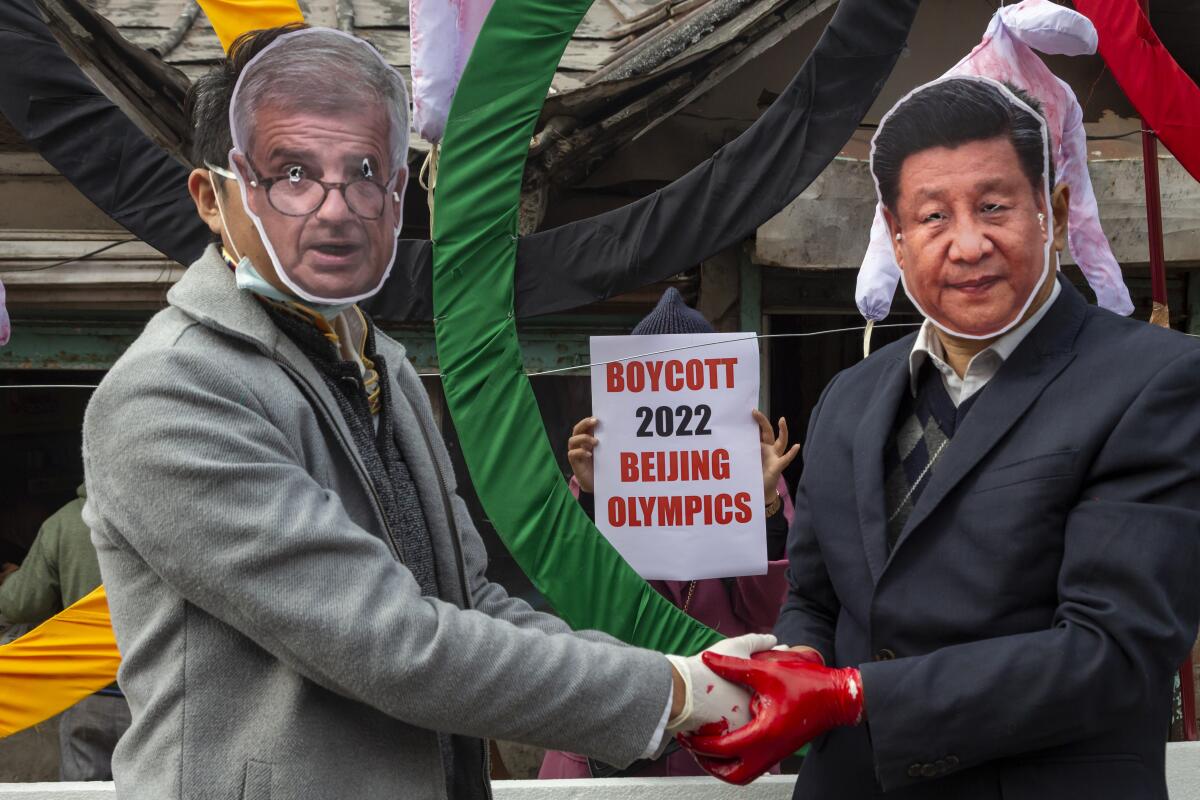
Tickets haven’t been sold yet, and IOC officials have acknowledged the possibility that the Games will be held without spectators.
Beijing will be the first city to host the Summer and Winter Olympics.
It’s also unclear if the Games will be held without NHL players for the second-straight Olympics. The men’s hockey competition became a headline event, especially after the introduction of professionals from the NHL in 1998.
Figure skater Nathan Chen, a world champion, figures to be a big story after he fell short of expectations in 2018. He could once again square off with Japanese star Yuzuru Hanyu, who is toe-looping his way toward a third-straight Olympic gold.
The United States women’s volleyball team won its first Olympic gold medal in the sport, sweeping Brazil at the Tokyo Games.
The Americans should again be favorites in snowboarding events, with Chloe Kim in prime position to repeat as one of the stars of the Winter Games. America could also once again fall in love with its curling teams, especially after the men’s gold-medal victory in 2018.
There will be seven new events in Beijing — women’s monobobsled, men’s and women’s freestyle skiing big air and mixed-team events in short track speedskating, snowboarding, skiing and ski jumping.
After a quick exhale (while masked) in Tokyo, there are only six months to build new story lines, to create new heroes and to battle human rights abuses and a global pandemic.
More to Read
Go beyond the scoreboard
Get the latest on L.A.'s teams in the daily Sports Report newsletter.
You may occasionally receive promotional content from the Los Angeles Times.

